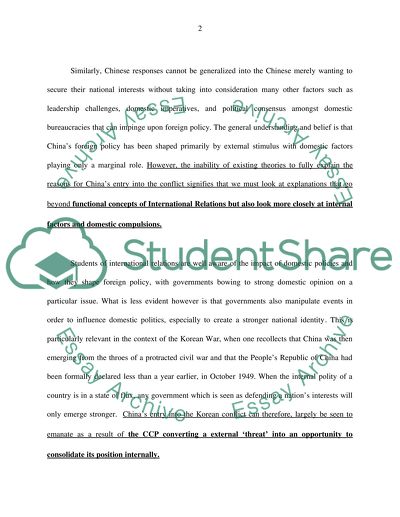Cite this document
(“The Chinese Decision to Enter the Korean War Essay”, n.d.)
Retrieved from https://studentshare.org/miscellaneous/1512023-the-chinese-decision-to-enter-the-korean-war
Retrieved from https://studentshare.org/miscellaneous/1512023-the-chinese-decision-to-enter-the-korean-war
(The Chinese Decision to Enter the Korean War Essay)
https://studentshare.org/miscellaneous/1512023-the-chinese-decision-to-enter-the-korean-war.
https://studentshare.org/miscellaneous/1512023-the-chinese-decision-to-enter-the-korean-war.
“The Chinese Decision to Enter the Korean War Essay”, n.d. https://studentshare.org/miscellaneous/1512023-the-chinese-decision-to-enter-the-korean-war.


